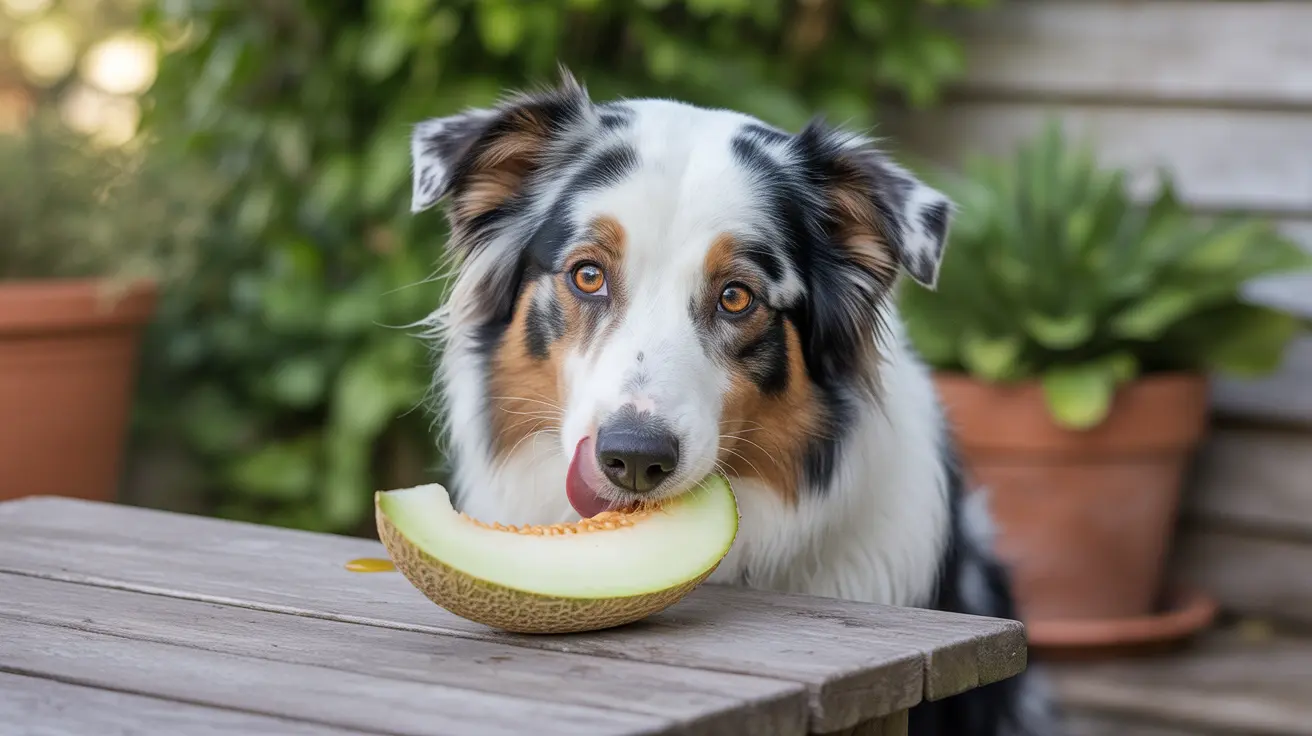Many pet owners wonder if their furry friends can safely enjoy honeydew melon. The good news is that dogs can eat honeydew when it's properly prepared and served in moderation. This refreshing fruit offers several nutritional benefits for your canine companion, but there are important guidelines to follow to ensure safe consumption.
Let's explore everything you need to know about feeding honeydew to your dog, including its health benefits, potential risks, and proper serving methods.
Benefits of Feeding Honeydew to Dogs
Honeydew melon packs a powerful nutritional punch for your four-legged friend. This hydrating fruit contains approximately 90% water, making it an excellent treat during hot weather or after exercise.
Key nutrients in honeydew include:
- Vitamin C for immune system support
- Vitamin A for vision and skin health
- Potassium for heart and muscle function
- Dietary fiber for digestive health
- Antioxidants for cellular protection
Safe Serving Guidelines
When preparing honeydew for your dog, follow these essential safety measures:
Proper Preparation
- Remove all seeds and rind completely
- Cut into small, bite-sized pieces appropriate for your dog's size
- Serve only fresh, ripe honeydew
- Wash the fruit thoroughly before cutting
Portion Control
Even though honeydew is safe for dogs, moderation is crucial. Limit servings to:
- Small dogs: 1-2 small pieces
- Medium dogs: 2-3 small pieces
- Large dogs: 3-4 small pieces
- Offer no more than once or twice per week
Potential Risks and Warnings
While honeydew is generally safe for dogs, there are several important considerations:
Health Concerns
Some dogs should avoid honeydew entirely, including:
- Dogs with diabetes due to sugar content
- Dogs with sensitive stomachs
- Dogs with known melon allergies
- Dogs on restricted diets
Warning Signs
Watch for these symptoms after feeding honeydew:
- Digestive upset or diarrhea
- Vomiting
- Lethargy
- Allergic reactions
- Changes in appetite
How to Introduce Honeydew to Your Dog
Start slowly when introducing honeydew to your dog's diet. Offer a single small piece and monitor their reaction for 24 hours. If no adverse effects occur, you can gradually increase the portion size while staying within recommended limits.
Frequently Asked Questions
Can dogs eat honeydew melon safely, and what are the benefits?
Yes, dogs can safely eat honeydew melon when properly prepared. Benefits include hydration, essential vitamins (A, C, and B6), minerals like potassium, and antioxidants that support overall health.
How should I serve honeydew to my dog, and what precautions should I take?
Remove all seeds and rind, cut the flesh into appropriately sized pieces, and serve fresh. Always wash the fruit thoroughly and monitor your dog's reaction when first introducing honeydew.
Is honeydew a good treat for dogs with diabetes or obesity?
No, honeydew is not recommended for diabetic dogs due to its sugar content. While it's low in calories, dogs with obesity should have limited access to any fruits, including honeydew.
Can dogs have honeydew seeds or rinds, or are they toxic?
Dogs should never eat honeydew seeds or rinds. While not toxic, they pose serious choking hazards and can cause intestinal blockages if ingested.
How often can I give my dog honeydew as a treat, and what are the risks of overfeeding?
Limit honeydew treats to once or twice per week. Overfeeding can lead to digestive issues, diarrhea, and potential weight gain due to the fruit's sugar content.
Conclusion
Honeydew can be a healthy, refreshing treat for most dogs when served properly. Remember to remove seeds and rind, cut into appropriate portions, and monitor your pet's reaction. While the fruit offers various nutritional benefits, it should only be given as an occasional treat within a balanced diet.
Always consult with your veterinarian before introducing new foods to your dog's diet, especially if your pet has any underlying health conditions or dietary restrictions.






